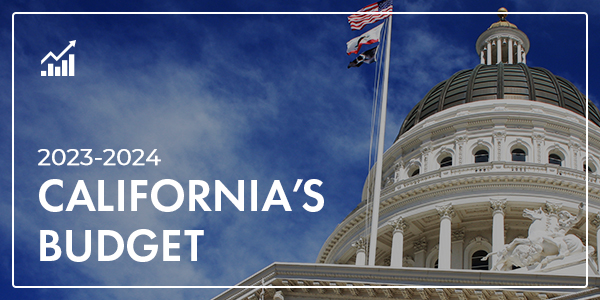Portantino Bills Addressing Dyslexia & Emergency Safety Procedures in Schools Pass Senate Education Committee
For Immediate Release: March 29, 2023
Contact: Lerna Shirinian, (818) 409-0400
Portantino Bills Addressing Dyslexia & Emergency Safety Procedures in Schools Pass Senate Education Committee
Sacramento, California – Today Senate Bills 691 and 323, authored by Senator Anthony J. Portantino (D – Burbank), passed the Senate Education Committee. SB 691 is aimed at improving literacy outcomes by requiring early identification and intervention for students who are at risk for dyslexia. SB 323 addresses the need for emergency safety procedures for IEP (individualized education programs) students.
SB 691:
Thousands of California children on the dyslexia spectrum struggle every day with reading at grade-level, often without the proper identification and support. Most school districts in California do not provide universal screening for students at risk of dyslexia, leaving teachers and staff without key resources necessary to help students.
“Dyslexia is the most common learning disability and yet it often goes undetected,” stated Senator Portantino. “Forty states have already passed legislation requiring screening for risk of dyslexia and it is past time for California to do the same. By screening all students for risk of dyslexia early, we can help families and teachers achieve the best learning and life outcomes for all students, close academic achievement gaps, and help end the school-to-prison pipeline.”
SB 691 would require all local educational agencies serving students in between kindergarten to second grade to screen every student for risk of dyslexia annually, unless parents or guardians choose not to have their child screened. The bill also requires the State Board of Education (SBE) to establish an approved list of evidence-based culturally, linguistically and developmentally appropriate screening instruments to be used by school districts to screen pupils for risk of dyslexia. The SBE approved instruments must include developmentally and linguistically appropriate screening for phonological and phonemic awareness, sound-symbol (and symbol-sound) recognition, alphabet knowledge, decoding skills, and rapid automatized naming. SB 691 requires that when screening, factors such as English language acquisition status, home language, and language of instruction are taken into consideration.
Under SB 691, results from the screening, California Dyslexia Guidelines, and information on Multi-Tiered Systems of Support would be made available to the student’s teacher and parent or guardian in a timely manner. For students identified as being at risk of dyslexia, local educational agencies are required to provide evidence-based literacy instruction, progress monitoring, and early intervention in the regular general education classroom.
"The overwhelming voices we heard in support of SB 691 from parents, educators, school board members, city and county supervisors, and advocacy organizations were clearly heard by the Senate Education Committee. We commend the Chair and Committee Members for their leadership and unanimous approval of the bill, which will ensure California kids have improved early access to the right to read," stated Lori DePole, Co-State Director for Decoding Dyslexia CA, a co-sponsor of the bill.
“The Senate Education Committee’s vote for SB 691 is a big step forward for California’s children,” said Marshall Tuck, CEO of EdVoice, also a co-sponsor of the bill. “By screening all children in grades K-2 for risk of dyslexia, we will get teachers and parents key information that will help them support all children with early literacy, which is a gateway to opportunity.”
SB 691 has thirty-three bipartisan co-authors, including Senator Wilk who is a principal co-author.
SB 323:
Due to complications that arise when a person is disabled, some individuals are not able to follow an evacuation plan, earthquake, or lockdown protocols in the same manner as the general population. Under the Americans with Disabilities Act (ADA), schools must provide for the educational needs of students with disabilities and address accessibility on campus for all persons. However, the broad mandate of the ADA does not adequately ensure the safety of students with disabilities during emergencies. The IEP is updated annually by the student’s team and provides an opportunity to identify necessary accommodations for student safety.
“School safety and emergency plans should be all inclusive and that requires careful planning and coordination,” stated Senator Portantino. “Special needs of students with disabilities can be unintentionally overlooked so we are hoping to address that issue with SB 323. I am thankful to constituent Andrea Crissman for bringing attention to this important issue.”
“My son has significant disabilities. He can’t walk, stand, or participate in a fire drill or earthquake drill, much less understand what they are and what to do,” said Andrea Crissman, a constituent and Glendale Unified parent. “I am extremely grateful to the Senator and his staff for listening to my concerns and all their work on this bill. Our most vulnerable students within special education can’t self-advocate, and run the risk of being overlooked. SB 323 sets up a safeguard and a structure for developing a more inclusive safety plan. It will help eliminate unnecessary confusion, and make it easier for educators and emergency responders to produce the best outcome in the event of a disaster.”
If the procedures of a comprehensive school safety plan are insufficient to ensure an IEP student’s safety during an emergency, SB 323 would require the IEP to include a description of the necessary accommodations to those procedures. Under SB 323, the emergency accommodation plan must be transferred within 30 days if the student changes schools. The bill would require a local educational agency to create and maintain an Inclusive School Emergency Plan and would require that those safety procedures be included in the Inclusive School Emergency Plan for any student whose parent provides written consent in compliance with specified federal laws. Additionally, SB 323 also provides guidance for how local educational agencies develop, maintain, and use an Inclusive School Emergency Plan.
###





